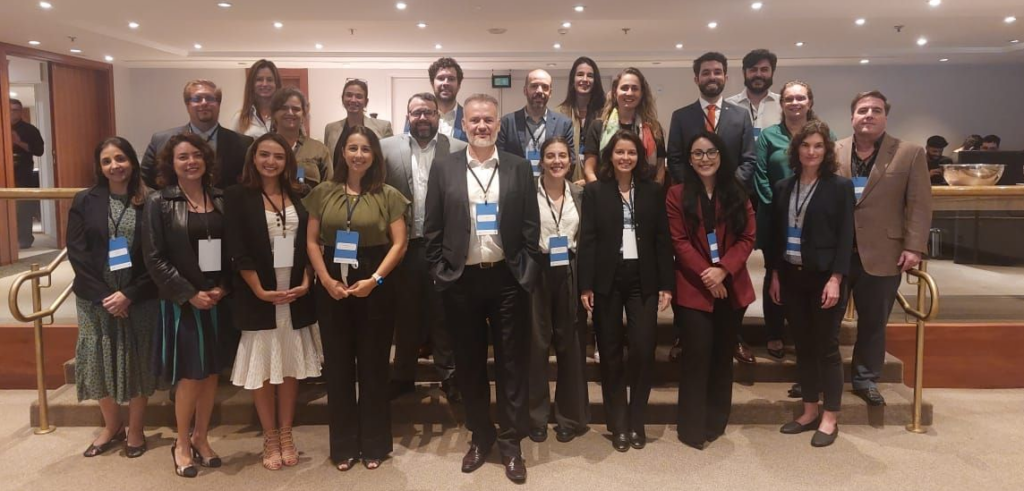Organization took part in debates held in Brasília and São Paulo

On May 6, Fundo Vale’s executive director, Patrícia Daros, and its Amazon and partnerships manager, Márcia Soares, took part in the launch event for a study titled “The Global Bioeconomy – A Preliminary Survey of G20 Strategies and Practices.” Carried out by Nature Finance and Fundação Getulio Vargas’ Center for Sustainability Studies on behalf of 19 organizations spanning academia, the private sector and civil society, the study mapped the progress of the bioeconomy among the G20 member countries. The launch event’s guests discussed different perspectives on the bioeconomy, the study’s main findings and the G20 countries’ approaches to this subject.
“This study revealed a diversity of perspectives on the bioeconomy in different countries. The G20 has included the bioeconomy in its discussions for the first time, and this will contribute greatly to the advancement of this issue. However, it is essential for bioeconomy actions to incorporate positive impacts on the climate, nature and people in an integrated way. Another important point we discussed was one of our main areas of focus: innovation involving financial mechanisms to expand the scale of bioeconomy ventures, through collaboration between various sectors of society,” said Patrícia Daros.
Sustainable finance

On May 17, in São Paulo, Letícia Zuardi of Fundo Vale’s Equity Stakes and Impact Investment Area took part in one of a series of events called “The G20 and FC4S: Private Sector Roundtables,” organized by the G20 presidency, the UNDP Financial Centers for Sustainability (FC4S) and the Financial Innovation Lab. The aim of these roundtables is to provide input for G20 meetings scheduled for November 18 and 19 in Rio de Janeiro, through collaborative and in-depth analysis of national perspectives.
Zuardi took part in a roundtable discussion covering the agenda of the G20 Sustainable Finance Working Group (SFWG). Among other things, the participants discussed private financial institutions’ strategies for integrating just transition-related principles. They highlighted how these institutions can support the shift to a low-carbon economy while mitigating social and economic impacts on vulnerable groups.
The second roundtable discussed the private sector’s role in implementing sustainability reporting requirements, emphasizing the challenges and opportunities presented by International Sustainability Standards Board (ISSB) rules. Solutions were sought to harmonize disclosures, reduce costs and avoid economic inefficiencies.
The third panel focused on the private sector’s involvement in financing nature-based solutions. The participants assessed existing funding gaps, discussed available financial tools to fill these gaps and proposed adjustments to optimize financial strategies to have a transformative impact in developing countries.
“The aim of the G20 Sustainable Finance Working Group is to help align the international financial system with the objectives of the 2030 Agenda and the Paris Agreement, helping break down market barriers. Sustainable finance is essential in the global context, as it directs resources to mitigate the climate crisis and promotes practices that boost economic development while respecting environmental limits and fairly including the most vulnerable groups,” said Letícia Zuardi.
